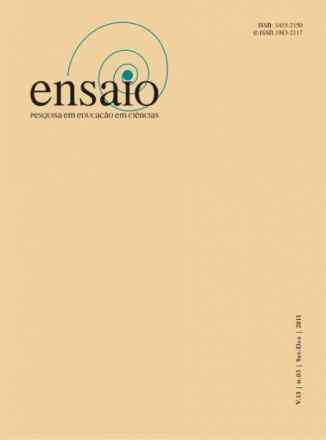FUNDAMENTOS TEÓRICOS DO PROCESSO DE FORMAÇÃO DE CONCEITOS E SUAS IMPLICAÇÕES PARA O ENSINO E APRENDIZAGEM DE QUÍMICA
Ensaio Pesquisa em Educação em Ciências
FUNDAMENTOS TEÓRICOS DO PROCESSO DE FORMAÇÃO DE CONCEITOS E SUAS IMPLICAÇÕES PARA O ENSINO E APRENDIZAGEM DE QUÍMICA
Autor Correspondente: Rodrigo Garrett da Costa | [email protected]
Palavras-chave: Conceitos; ensino e aprendizagem; QuÃmica; concepts; teaching and learning; Chemistry
Resumos Cadastrados
Resumo Português:
A problemática do processo de formação de conceitos encontra explicação nas diversas correntes filosóficas, dentre as quais podem ser citadas a empirista e a materialista dialética. A primeira acredita que o esquema formativo dos conceitos deva se apoiar nas experiências sensoriais e na capacidade de representação dos objetos, enquanto a segunda atribui grande importância aos conhecimentos historicamente construÃdos, destacando os aspectos relacionados tanto a sua antogênese quanto a sua filogênese. Nesse sentido, o presente trabalho pretende contribuir com as pesquisas em Educação QuÃmica, na medida em que busca uma maior aproximação entre as investigações de cunho filosófico-psicológico e as de caráter didáticopedagógico, particularmente quanto ao estudo das vias de desenvolvimento dos conceitos
cientÃficos em situações de ensino e aprendizagem.
Resumo Inglês:
The problematic of the concepts formation process finds explanation in the several philosophical currents, among which the empiricist and the dialectical-materialistic can be mentioned. The former believes that the concepts formative scheme must be supported by the sensorial experience and by the object representation capacity, while the second gives great importance to the historically built
knowledge, highlighting the aspects related to its antogenesis as well as to its phylogenesis.
In this direction, the present work aims to contribute to the research in chemical education, as it searches an approximation between the psychological-philosophical and the didactic-pedagogic investigation, particularly in relation to the study of the scientific concepts development on teaching and learning.

